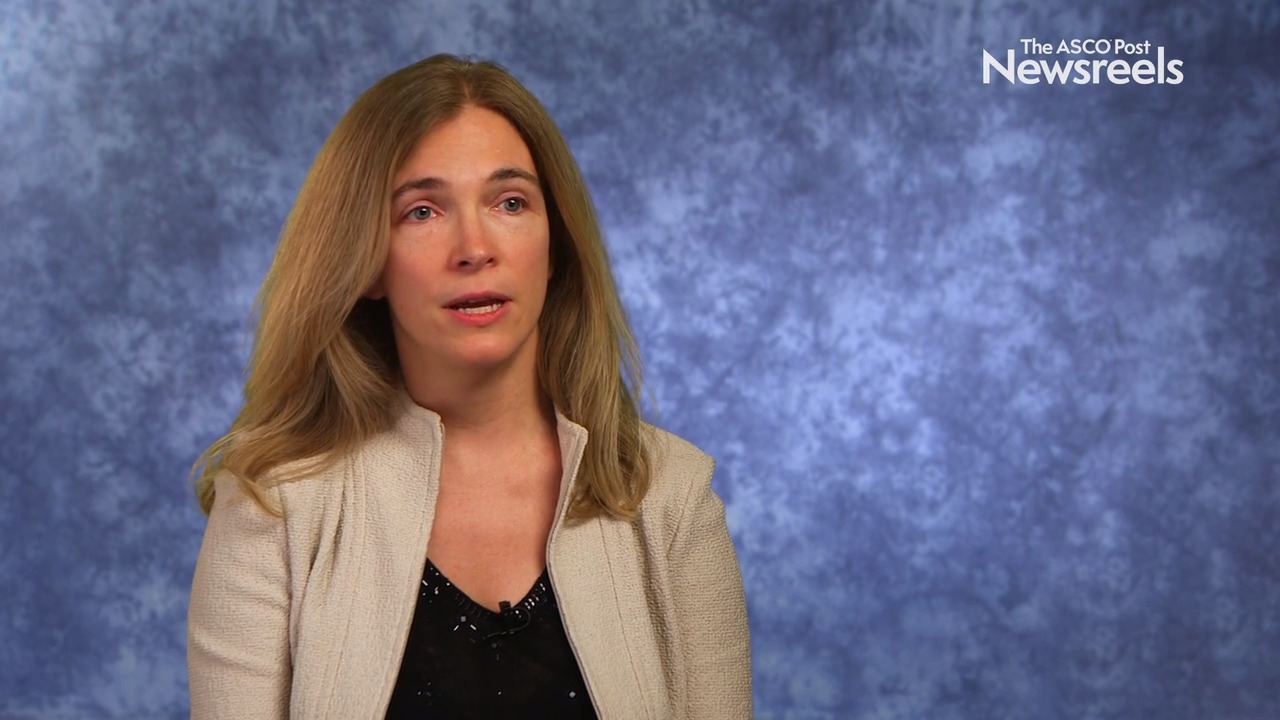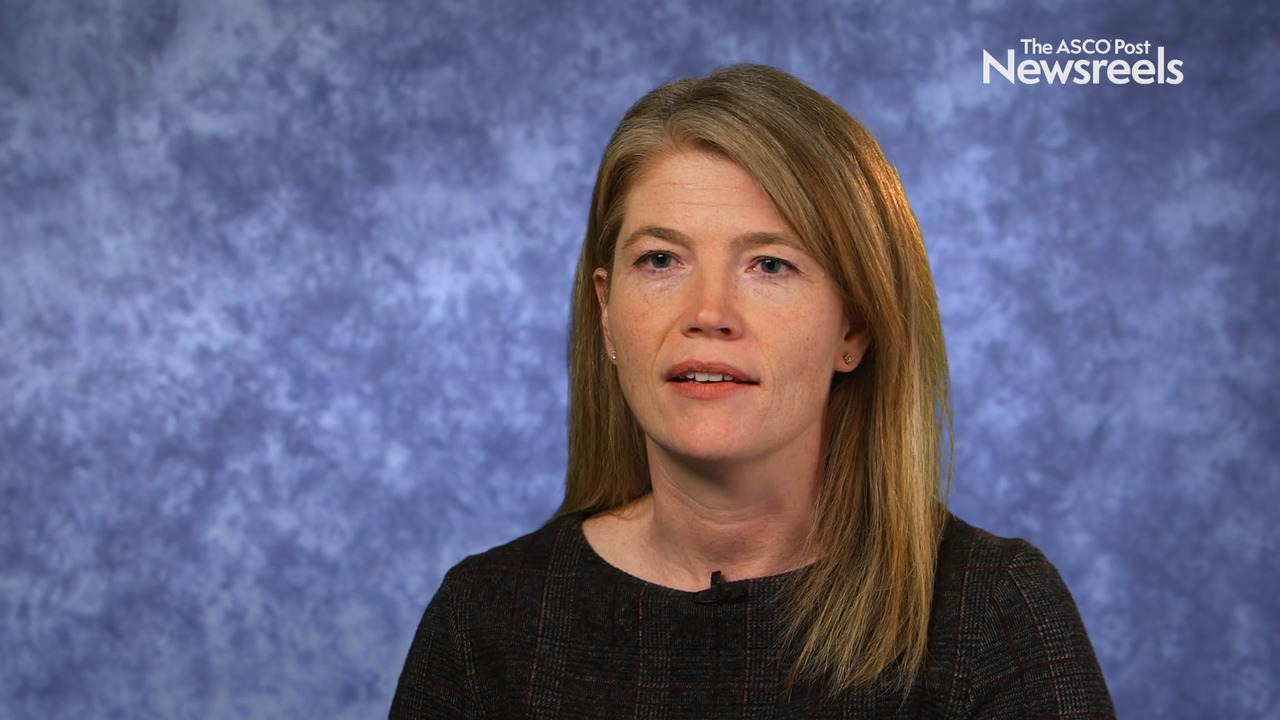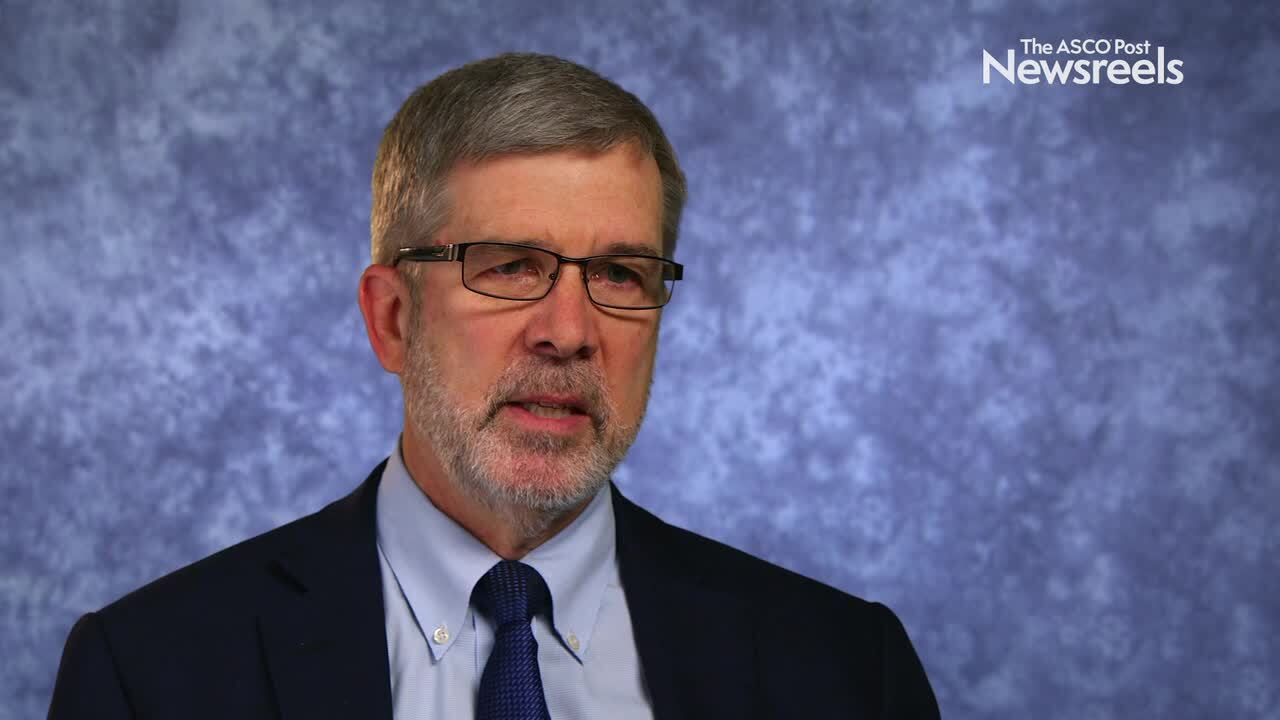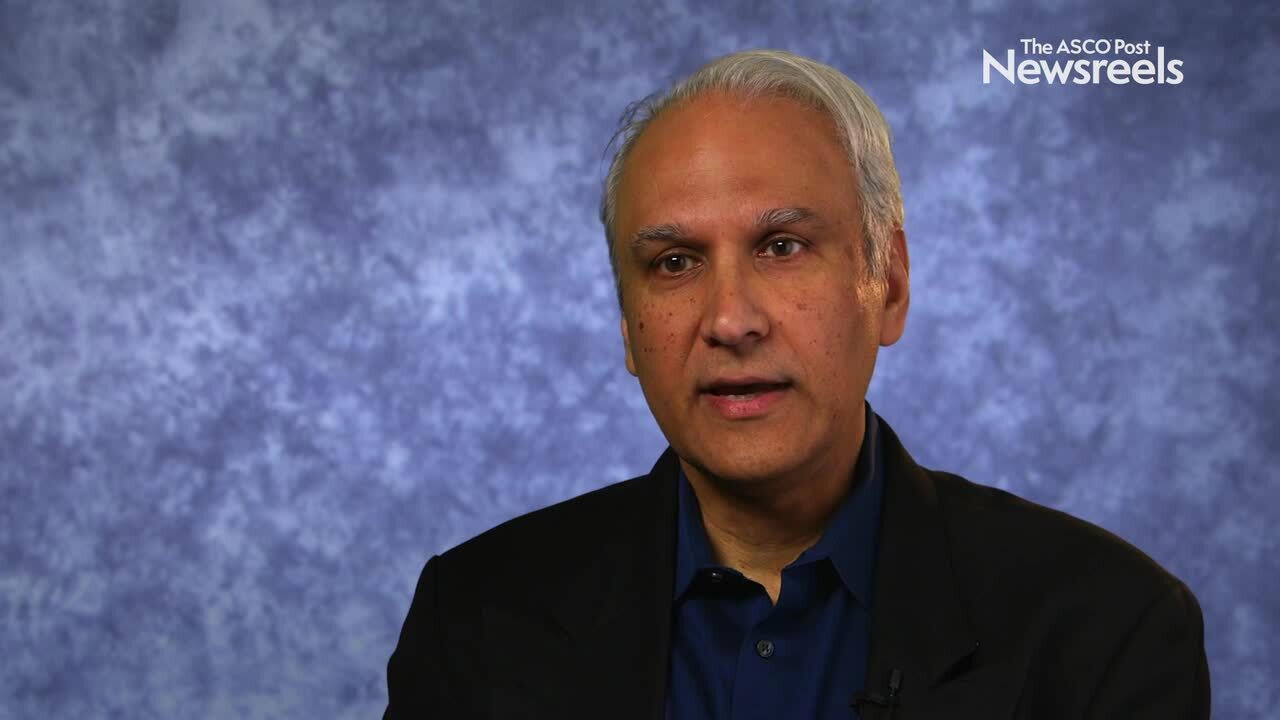Wells A. Messersmith, MD, on Managing Metastatic Colorectal Cancer: NCCN Guidelines Update
NCCN Annual Conference 2019
Wells A. Messersmith, MD, of the University of Colorado Cancer Center, discusses results of recent clinical trials, emerging treatment options, and approaches that may improve outcomes in patients with metastatic colorectal cancer.
Chrysalyne Schmults, MD, of Brigham and Women’s Hospital, discusses treatment strategies in these nonmelanoma skin cancers, including surgery, forthcoming staging systems, and ongoing trials combining adjuvant radiotherapy and immunotherapy.
Melinda L. Telli, MD, of the Stanford Cancer Institute, discusses the various systemic therapies for patients with early-stage hormone receptor–positive, HER2-negative disease.
James L. Mohler, MD, of the Roswell Park Comprehensive Cancer Center, discusses updated recommendations in prostate cancer: more specificity for family history and genomic sequencing, as well as the evolving uses of androgen-deprivation therapy.
Neil P. Shah, MD, PhD, of the UCSF Helen Diller Family Comprehensive Cancer Center, discusses the feasibility of discontinuing tyrosine kinase inhibitor therapy in select patients with chronic phase chronic myeloid leukemia outside of clinical trials.
William J. Gradishar, MD, of the Robert H. Lurie Comprehensive Cancer Center of Northwestern University, discusses evidence-based first-line treatment options for patients with advanced hormone receptor–positive, HER2-negative breast cancer and toxicities associated with the various therapeutic options.





